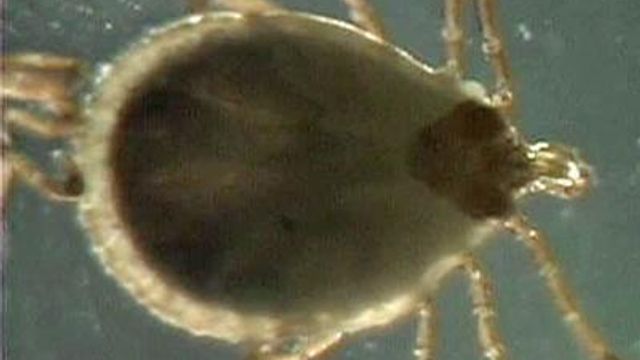Tick Bites Spread Rocky Mountain Spotted Fever
North Carolina is on track to lead the country in cases of Rocky Mountain spotted fever for a second year. The possibly fatal disease is spread by ticks.
Posted — UpdatedNorth Carolina saw 800 cases of the possibly fatal disease in 2006 and has already reached more than 200 reported cases this year.
That rate of reported cases places North Carolina on track to reach the same number as last year, state health officials said.
Locally, Wilson County health officials have confirmed one case of Rocky Mountain spotted fever and are investigating three more possible cases.
"The gentleman that is confirmed got very sick with the symptoms," said Pam Flowers, a communicable disease nurse with the Wilson County Public Health Department.
A mild winter in Wilson County helped increase in the tick population, which speads the disease to humans, Flowers said.
Kent Lee said he is taking preautions to avoid tick bites, since he works mostly outdoors for Wilson County Parks and Recreation. Lee said he's wearing long-sleeve shirts, pants and hats to work, which health officials said are good measures.
Flowers urged people to check carefully for ticks after being outdoors. Infants, children and the elderly are particularly suspectible to the disease, she said.
Anyone bitten by a tick should try to bring it into their doctor for testing, health officials said.
Epidemologists said a surge in the deer population has also helped increase the tick population, including Lone Star ticks, which are known to carry communicable diseases.
• Credits
Copyright 2024 by Capitol Broadcasting Company. All rights reserved. This material may not be published, broadcast, rewritten or redistributed.





